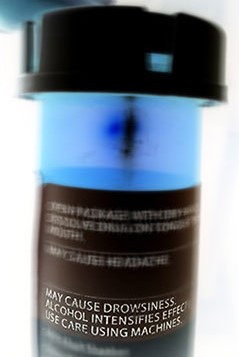Littleton Downtown Riverwalk
Enjoying Mt. Washington
Franklin's Lesson For Today
NH Helicopter Rides
FREE Stuff To Do
NH Lupine Photos
Avoiding Romance Scams
Pittsburg NH Profile
Mascoma Lake Profile
Farm To Table Restaurants
Carroll NH (Twin Mtn.) Profile
Colebrook NH Profile
Ben Kilham Profile
Whitefield NH Profile
Clark's Trading Post
Study Details Alcohol-Medication Interaction Risk
NIH study reveals many Americans at risk for alcohol-medication interactions.
Such medications are widely used, prescribed for common conditions such as depression, diabetes and high blood pressure.
The research is among the first to estimate the proportion of adult drinkers in the
 United States who may be mixing alcohol-interactive medications with alcohol. The resulting health effects can range from mild (nausea, headaches, loss of coordination) to severe (internal bleeding, heart problems, difficulty breathing).
United States who may be mixing alcohol-interactive medications with alcohol. The resulting health effects can range from mild (nausea, headaches, loss of coordination) to severe (internal bleeding, heart problems, difficulty breathing)."Combining alcohol with medications often carries the potential for serious health risks," said Dr. George Koob, director of the National Institute on Alcohol Abuse and Alcoholism (NIAAA), part of NIH. "Based on this study, many individuals may be mixing alcohol with interactive medications and they should be aware of the possible harms."
The study, led by Dr. Rosalind Breslow, Ph.D., appears in the February 2015 issue of Alcoholism: Clinical and Experimental Research , now online at the journal's website.
"Our findings show that a substantial percentage of people who drink regularly, particularly older adults, could be at risk of harmful alcohol and medication interactions," said Dr. Breslow, an epidemiologist in NIAAA's Division of Epidemiology and Prevention Research. "We suggest that people talk to their doctor or pharmacist about whether they should avoid alcohol while taking their prescribed medications."
Older adults are at particular risk of experiencing alcohol-medication interactions. Not only are they more likely to be taking medications in general, but certain alcohol-interactive medications, such as diazepam (Valium), are metabolized more slowly as one ages, creating a larger window for potential interactions.
The researchers analyzed data from more than 26,000 adults ages 20 and older who participated in the National Health and Nutrition Examination Survey (1999-2010). The survey asks participants about alcohol use in the past year and prescription drug use in the past month.
Dr. Breslow notes that the results of the study indicate potential (rather than actual) rates, because the researchers could not confirm whether drinking and medication use overlapped based on the available data. However, it is likely that those who drink regularly and take medication regularly are doing so in a similar time frame.
The main types of alcohol-interactive medications reported in the survey were blood pressure medications, sleeping pills, pain medications, muscle relaxers, diabetes and cholesterol medications, antidepressants and antipsychotics.
Based on recent estimates, about 71 percent of U.S. adults drink alcohol.
For more on alcohol-medication interactions, see this NIAAA fact sheet .
Seussical (9/6-15)
2001 Space Odyssey (9/7)
Muster in the Mountains (9/7-9)
Wingzilla (9/8)
Canzoniere Grecanico Salentino (9/9)
Things [Mom] Taught Me (9/13-23)
Reach the Beach (9/14-15)
WM Storytelling Festival (9/14-16)
Metallak Race (9/15)
Mandeville & Richards (9/15)
Cohase Film Slam (9/16)
Tricycle Grand Prix (9/16)
Rodney Crowell (9/21)
NH Highland Games (9/21-23)
Don Who (9/22)
Harvest Celebration (9/22)
Health & Wellness Fair (9/22)
Jeep Invasion (9/22)
Lakes Region Tri Festival (9/22-23)
Pat Metheny (9/26)
Driving Miss Daisy (9/27 - 10/6)
Neko Case (9/27)
Shot of JD (9/28)
Dixville Half Marathon (9/29)
New Hampshire Marathon (9/29)
Matthew Odell (9/30)
Lincoln Fall Craft Festival (10/6&7)
Sparrow Blue & Crowes Pasture (10/6)
Oktoberfest (10/6-7)
White Mountain Oktoberfest (10/6-7)
Fall Foliage Celebration (10/6-8)
Sandwich Fair (10/6-8)
Paddle the Border (10/7)
Lincoln Fall Craft Festival (10/7-9)
Shadow Play (10/10)
Killer Joe (10/11-21)
Greg Brown (10/12)
Camping & RV Show (10/12-14)
Riverfire & Horrorfest (10/13)
Jay Stollman Band (10/19)
Murder Dinner Train (10/19-20)
Pumpkin Patch Express (10/19-21)
All Things Pumpkin (10/20)
Ethan Setiawan Band (10/20)
Bettye LaVette (10/26)
Murder Dinner Train (10/26-27)
Pumpkin Patch Express (10/26-28)
Berlin Jazz (10/27)
Photo Galleries





Business Directory
Moffett House Museum
Northland Restaurant
Perras Treasures Party Store
Personal Touch Home Health
White Mountain Cottages
more ►


Clark's Trading Post
Cog Railway
Conway Scenic Railroad
Flume
Fort Jefferson Fun Park
Jericho Mountain ATV Park
Kancamagus Highway
Littleton Riverwalk
Lost River Gorge
Mountain Meadow Funplex
Mt. Washington Auto Road
Polar Caves
Santa's Village
Storyland
Vertical Ventures
Whale's Tail Water Park
Woodstock Inn & Brewery
more ►
Community Profiles
Bethlehem
Bretton Woods
Colebrook
Conway
Franconia
Gorham
Hanover
Jackson
Lebanon
Lincoln
Littleton
North Conway
Pittsburg
Plymouth
Twin Mountain
Whitefield
Wolfeboro
more ►
Recreation and Tourism
Farm To Table Restaurants
Hiking To Crash Sites
Little Ski Areas
Local Movie Theaters
Local Performance Theaters
Moose Tours
more ►
Other Resources
NH Cabins & Cottages
NH Census Info
NH Data (OEP)
NH Fishing Reports
NH Foliage Report
NH Hiking Trail Conditions
NH Lottery
NH Movie Guide
NH Road Conditions
NH Ski Reports
NH Snowmobile Trail Reports
NH State Parks
NH Town Officials Directory
NH Weather
Summer Safety Tips
[.pdf]
White Mtn. National Forest
VisitNH.Gov
Copyright 2012-2018 by George C. Jobel , 603-491-4340. All Rights Reserved.





















